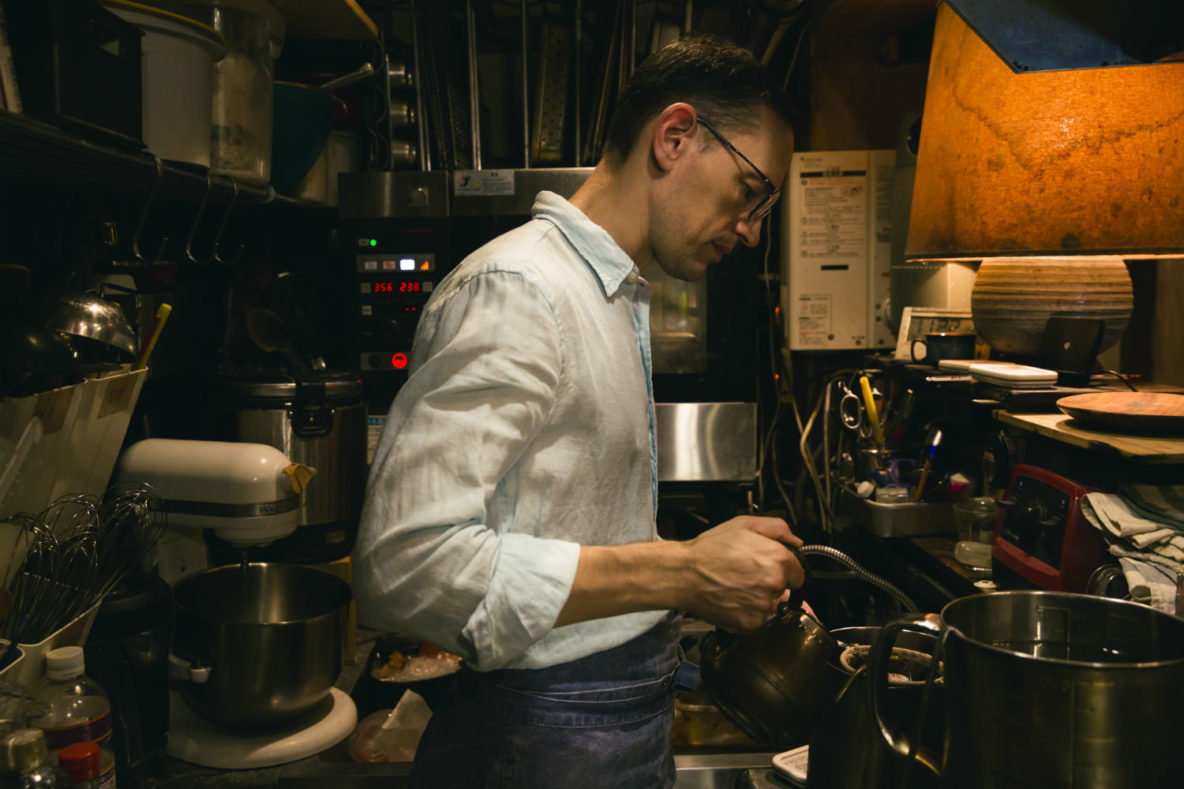Cafe Casa
When Cafe Casa’s popular hotcakes were featured on a well-known Japanese television program, the lines of customers waiting to try one stretched down the block for several weeks. But while the cafe’s fluffy, thick version of a classic pancake may be what draws many people there initially, regulars know that it has much more than that to offer. Tucked behind a welcoming facade of colourful plants and twinkling string lights, Cafe Casa is in many ways a quintessentially Tokyo establishment, representing both the old and the new. It has occupied its homey space for over three decades, and its die-hard customers have fond memories of the days when its original proprietress would serve them cakes and coffee while engaging them in a conversation on whatever topic took their fancy. Today, the faces have changed, but the friendly atmosphere still remains. The cafe is now run by the original owner’s daughter, Ai, and her American husband, Jonathan Hebert. The mother still drops in from time to time to mingle with the diners, and the family dog, Mame-chan, also holds court in the hall. For Hebert, it’s not a life that he could have imagined for himself when he was working as a decorative painter in Boston, but it’s one he has embraced wholeheartedly. “I started off by washing the dishes when everyone else was busy making hotcakes, and I have gradually learned the ropes since then,” he says. Hebert and his family live above the cafe, and on a typical day he is the first one in the kitchen, preparing the hotcake batter and making the nel drip coffee, a time-consuming process that he describes as a kind of meditation. Next come the part-time staff, who prep for the lunch rush before Ai comes down and begins the cooking. While some of the menu items, including the famous hotcakes, have been passed down from her mother, Ai developed many of the current recipes herself. Having studied cooking in Florence, she enjoys experimenting with different methods and combinations that are well suited to Casa’s tiny kitchen. One of her best-selling inventions is the baked keema curry, which consists of a layer of rice in a skillet, topped with spicy curry, shredded cheese, and a whole egg before being cooked in the oven. “Unless we continue to innovate, people get bored with it,” Hebert says. “We’re trying to turn the cruise ship. We don’t want to change too much too quickly, but we do want to take it in a new direction.” That new direction also includes the cafe’s look. While it retains its classic Showa-era charm, Hebert has used his artistic skills to put his own personal touch on it. He added colourful stained glass windows to the front wall, and his illustrations grace the menu and signboards. “We just want this to be the place where people are comfortable coming. Casa in Spanish is house, so I want this to feel like a home, for Japanese and foreigners alike,” Hebert says.

